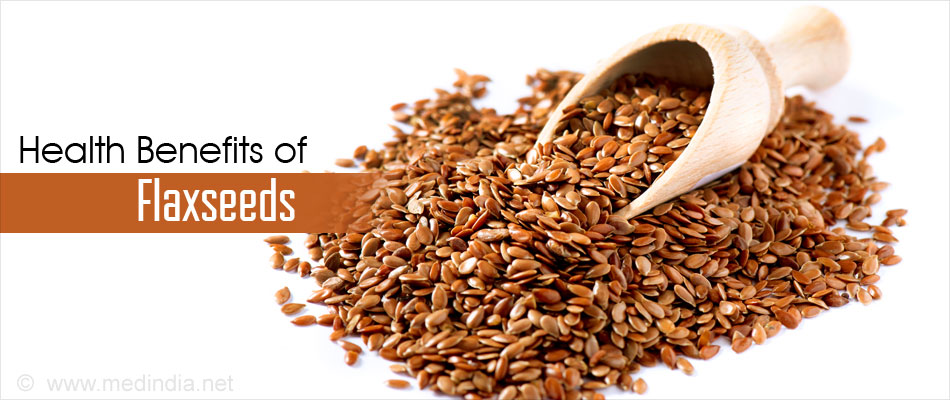- Pierce, G. “The facts about flax” Wave, January / February 2013
- Gebauer SK, Psota TL, Harris WS, Kris-Etherton PM. n-3 fatty acid dietary recommendations and food sources to achieve essentiality and cardiovascular benefits. Am J Clin Nutr. 2006;83:1526S–35S
- Heli J. Roy et al “Flaxseed – A review of health benefits” The Pennington Biomedical Research Center, Pennington Nutrition Series No 5, 2009
- Kris-Etherton PM, Taylor DS, Yu-Poth S, et al. Polyunsaturated fatty acids in the food chain in the United States. Am J Clin Nutr. 2000;71(Suppl 1):179–88.
- Mani UV, Mani I, Biswas M, Kumar SN. An open-label study on the effect of flax seed powder (Linum usitatissimum) supplementation in the management of diabetes mellitus. J Diet Suppl.2011;8(3):257–265.
- Delfin R.L et al “The cardiovascular effects of flaxseed and its omega-3 fatty acid, alpha-linolenic acid” Can J Cardiol. 2010 Nov; 26(9): 489–496.
- Bloedon LT, Szapary PO. Flaxseed and cardiovascular risk. Nutr Rev. 2004;62:18–27.
- Djoussé L, Hunt SC, Arnett DK, et al. Dietary linolenic acid is inversely associated with plasma triacylglycerol: The NHLBI Family Heart Study. Am J Clin Nutr. 2003; 78:1098–102.
- University of Maryland medical centre, 2015
- Paschos GK, Magkos F, Panagiotakos DB, Votteas V, Zampelas A. Dietary supplementation with flaxseed oil lowers blood pressure in dyslipidaemic patients. Eur J Clin Nutr. 2007; 61:1201–6.
- Kataria, N.; Gandhi, B; Saboo, M. “Top ten healthy foods” Sanjay&Co, Mumbai, 2010.
- Demark-Wahnefried W, Price DT, Polascik TJ, et al. Pilot study of dietary fat restriction and flaxseed supplementation in men with prostate cancer before surgery: exploring the effects on hormonal levels, prostate-specific antigen, and histopathologic features. Urology. 2001;58(1):47-52.
- Dew TP, Williamson G. Controlled flax interventions for the improvement of menopausal symptoms and postmenopausal bone health: a systematic review. Menopause. 2013;20(11):1207-15
- Dupasquier CM, Weber AM, Ander BP, et al. Effects of dietary flaxseed on vascular contractile function and atherosclerosis during prolonged hypercholesterolemia in rabbits. Am J Physiol Heart Circ Physiol. 2006; 291:H2987–96.
- Goyal, A. et al “Flax and flaxseed oil: an ancient medicine & modern functional food” J Food Sci Technol. 2014 Sep; 51(9): 1633–1653.
What are Flaxseeds?
Flax (Linum usitatissimum) is a blue flowering crop. It produces small, flat seeds ranging in color from golden yellow to reddish brown. The seeds are commonly consumed as whole seed, ground seed, or flaxseed oil. It is called "Alsi" in hindi.
In the last decade, flaxseed has garnered much attention due to its well-established health benefits. Most of the benefits from flaxseed consumption can be attributed to its high level of the essential fatty acid, omega 3 (á-linolenic acid (ALA), fiber and lignans. This type of beneficial fat is also found in walnuts, canola and soybean, flax containing the highest concentrations.

Omega 3 fatty acid in flaxseed differs from the kind found in fish and fish oils. Omega 3 fatty acids eicosapentaenoic acid (EPA) and docosahexaenoic acid (DHA) are found in fish, while a third omega 3 called alpha-linolenic acid (ALA) is found in flax seeds. For vegetarians flaxseed oil stands to be extremely high in omega-3 fatty acid content. The oil is 5.5 times higher in ALA than the next highest sources, namely whole flaxseeds, walnut oil, walnuts, canola oil, soyabean oil. Recent research now attributes flax seeds and flax seed oil to be equivalent to fish oils in rendering health benefits.
Nutritional Facts
Rich in Lignans
The fibrous shell of the flaxseed contains plant ‘lignans.’ Lignans exhibit immunostimulatory anti-bacterial, anti-fungal and anti-viral effects. They act as both antioxidants and phytoestrogens. Flax contains up to 800 times more lignans than other plant foods. Numerous studies have revealed the potent anti-cancer properties of these amazing natural plant chemicals. Lignans have shown to exhibit anti-atherosclerosis and anti-diabetic effects too.
Full of Fiber
Flaxseeds are rich in dietary fiber essential for prevention of metabolic disorders, obesity and intestinal health. Just 10g of flaxseed in the daily diet increases the daily fiber intake by 1g of soluble fiber and by 3g of insoluble fiber.
Dietary Recommendations
Flaxseed contains approximately 23g ALA per 100g (USDA 2010).
Various expert committees have recommended dietary intakes of ALA. Experts with the International Society for the Study of Fatty Acids and Lipids (ISSFAL) called for an ALA intake of 2.2 g/day.
- Infants (below 1 yr) = 0.5g/day*
- Children (1 to 3 yrs) = 0.7g/day; (4 to 8 yrs) = 0.9g/day
- Teens (1.1g/day)
Composition of Flaxseed Based on Serving Size of One Tablespoon
| Form of Flaxseed | Weight(g) | Energy (Kcal) | ALA(g) | Total dietary Fiber(g) | Soluble Fiber(g) |
| Whole seed | 11 | 50 | 2.5 | 3 | 0.75 |
| Ground seed | 8 | 36 | 1.8 | 2.2 | 0.55 |
| Flax seed oil | 14 | 124 | 8 | 0.0 | 0.0 |
Source: The Pennington Biomedical Research Center, Pennington Nutrition Series No 5, 2007
The recommended dietary amounts of ALA can be obtained by consuming about one tablespoon of whole flaxseed or 1.25 tablespoons of ground flax seeds or a teaspoon of flaxseed oil. Research indicates that ALA levels are increased as early as two weeks after the initiation of flaxseed supplementation. The bio-availability of ALA is dependent on the type of flax ingested. ALA has greater bioavailability in oil than in milled seed and has greater bioavailability in milled seed than in whole seed.
Ways to Consume Flaxseeds
Children
Roasted ground flax seeds or flaxseed oil may be added to a child's diet to enrich it with beneficial fatty acids important for boosting immunity and brain development. Ground flaxseeds can be added to pancakes and fruit purees.
Adults
Roasted or ground form of flaxseeds can be taken with water. Incorporate flaxseeds in foods such as sandwich spread, yogurt, egg dishes and breakfast cereal. Flaxseed oil capsule can be taken as a supplement. Flaxseeds and flaxseed oil are highly prone to rancidity. Thus, it should be refrigerated to extend the shelf life.
Health Benefits of Flaxseeds
1. Aids in Weight Loss
Flaxseed fibers form highly viscous solutions upon hydration. Particularly viscous fibers appear effective in suppression of hunger and cravings, potentially promoting weight loss Soluble dietary fibers of flaxseed mucilage are multibranched hydrophilic substances. They form viscous solutions that delay gastric emptying and nutrient absorption from the small bowel. Consumption of 5 to 10 grams of flaxseed fibers increase satiety and decrease the hunger-signaling hormone, ghrelin.

2. Relieves Menopausal Symptoms
Effect of flaxseed consumption on menopausal symptoms has not been too clear. However, some studies have shown that flaxseed consumption of 40 g per day may help reduce mild menopausal symptoms like hot flashes, mood disturbances, and vaginal dryness.
3. Prevents Cancer
Breast cancer
Flaxseed contains lignans, which may act like estrogen in the body, scientists aren't sure whether flaxseed would be harmful or helpful for breast cancer. A supplementation study was conducted on postmenopausal women who were newly diagnosed with breast cancer. The participants were given a muffin with 25 grams of dietary flaxseed for 40 days. The study found that adding flaxseed to the diet reduced tumor growth in postmenopausal women with breast cancer.

Colon cancer
Studies suggest that flaxseed may reduce the number of abnormal cell growths, which are early markers of colon cancer.
4. Helps Manage Diabetes
The World Health Organization (WHO) conducted a study on the effect of flaxseed powder supplementation in the management of diabetes. It was found that the diabetic subjects who took a tablespoon of ground flaxseeds every day for a month, experienced a significant drop in fasting blood sugars and HbA1C level when compared to the control group. If an individual’s blood sugar levels are already well controlled, there may be little benefit.
A study published in the Journal of Dietary Supplements showed that supplementation of 10 grams of flaxseed powder to the diet of type 2 diabetics for a period of one month reduced fasting blood glucose by 19.7 %. Flaxseeds improve insulin sensitivity in glucose intolerant people.
5. Keeps the Heart Healthy
One of the best ways to prevent and treat heart disease is by eating a diet low in saturated fat and trans fat. Include foods rich in monounsaturated and polyunsaturated fats, with emphasis on omega-3 fatty acid rich foods like flaxseeds. People who eat an ALA-rich diet are less likely to have a fatal heart attack.

6. Lowers Cholesterol and Triglyceride Levels
In general, flaxseed-enriched diets have been reported to induce a decrease in LDL and total cholesterol. The NHLBI Family Heart Study, which included 4440 subjects, showed that dietary ALA is associated with lower plasma triglyceride concentrations.
7. Improves Digestion
Studies have found that flaxseeds prevent both diarrhea and constipation. The insoluble fiber in flaxseeds adds bulk to the digestive waste, acting as a laxative and relieving constipation. The soluble fiber binds to water in the digestive tract causing it to swell and increase the bulk of the stool, therefore preventing diarrhea.

8. Enhances Muscle Build-up in Men
Flaxseeds are one of the superfoods for bodybuilders. About 100 grams of flaxseeds provide 25 to 30 grams of protein. ALA in flaxseeds enhance insulin sensitivity within muscle cells and also prevent storage of fat in the muscle tissue. Flaxseed oil is an excellent source of energy, in particular for athletes and those who burn more calories energy during workouts.
The association between ALA intake and prostate cancer has shown mixed results. Research showed that flaxseed (30 g of daily intake) may benefit men with a precancerous prostate condition and retard tissue growth.
9. Healthy Hair and Skin
The benefit of flaxseeds on hair and skin relies on the extremely high levels of omega 3 alpha-linolenic acid content, concentrated even further in cold pressed flax seed oil. Omega-3 fats nourish hair follicles, encouraging healthy hair growth. The vitamin E found in cold pressed flaxseed oil also provides additional nourishment. One of the most common indicators of an omega-3 deficiency is said to be dry, brittle hair, which over time can lead to hair loss, dandruff, eczema. The skin can become dull and develop pimples. Thereby, it is of utmost importance to get a daily dose of the seed, oil or a supplement in the diet for healthy hair and skin.

10. Lowers Hypertension
ALA is associated with lowering blood pressure. A study published in the European Journal of Clinical Nutrition showed that 12 weeks of dietary flaxseed supplementation (8 g/day of ALA) resulted in a significant decrease in systolic and diastolic blood pressure.
Another study published in the American Journal of Physiology- Heart and Circulatory Physiology found that a flaxseed-supplemented, ALA-rich diet (12.5 g of flaxseed/day) preserved vascular relaxation from the deleterious effects that an atherogenic, high-cholesterol diet can induce. Results suggest that ALA may directly induce beneficial vascular effects.
Caution
- Women with breast, uterine, and ovarian cancer or endometriosis should not indiscriminately consume flaxseeds as it may act like estrogen in the body.
- People with a bowel obstruction, inflamed bowel should not take flaxseed. It is high in fiber. It could make the condition worse.
- Ground flaxseed should be taken with a lot of water.
- Omega-3 fatty acids may increase the risk of bleeding, for people taking blood thinners. They should not be taken together.
- Flaxseeds tend to lower blood sugar levels. If taking medicines for diabetes, including insulin, flaxseeds (ALA), should be taken under doctor's supervision.
- Flaxseed may alter hormone levels and change the effects of oral contraceptives or HRT.
Flaxseed Recipes
Flaxseed Yogurt/ Raita
Serves 4, Fiber per serving: 0.6g; calcium per serving: 90.4 mg
Ingredients:
- 1 cup thickly grated bottle gourd
- 1 cup fresh beaten low-fat curds
- 1/2 cup finely chopped mint leaves
- 1/4 tsp roasted cumin seeds
- 1/4 tsp black salt
- 1/2 tsp sugar
- 1 1/2 tbsp roasted and coarsely ground flax seeds
- salt to taste
Method:
- Combine the bottle gourd with 2 tablespoon of water in a deep pan and mix well. Cover and cook on a medium flame for 4 to 5 minutes or till the water evaporates. Keep aside to cool.
- Combine all the ingredients, including the cooked bottle gourd in a deep bowl and mix well.
- Refrigerate for at least 1 hour.
- Serve chilled.






